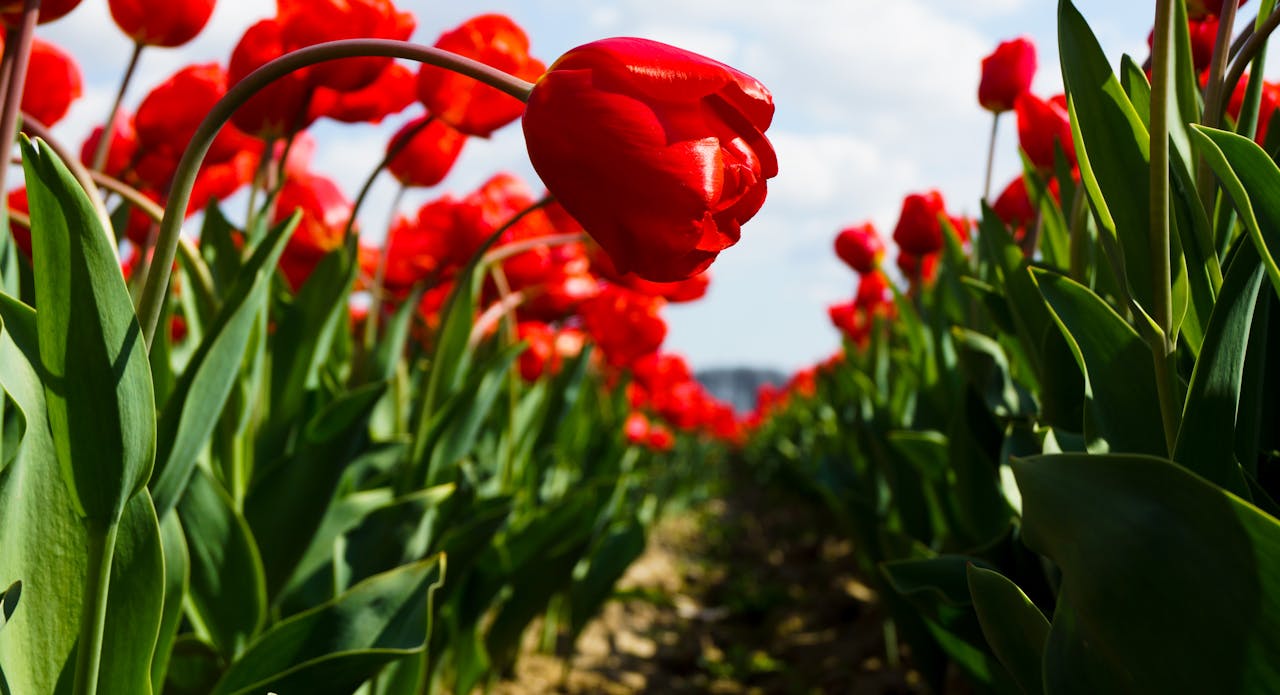How To Fertilize Roses Organically [Proven Methods]
Wondering how to improve your rose garden naturally? Organic fertilization offers a sustainable way to promote growth and stunning blooms.
Oct 22, 202450 Shares49.8K Views

Fertilizing roses is an essential practice to ensure healthy growth, vibrant blooms, and disease resistance. While synthetic fertilizers are popular, organic fertilizers provide a more sustainable and beneficial option for both roses and the environment. Organic fertilization enriches the soil with vital nutrients, promotes beneficial microbial activity, and enhances the long-term health of your garden.
Nutrients Roses Need For Optimal Growth
Roses require a balanced mix of nutrients to thrive, including macronutrients and micronutrients. The most crucial nutrients that your roses need include:
Nitrogen (N)
Nitrogen (N), Phosphorus (P), and Potassium (K) play a key role in the health of your roses, contributing to leaf and root growth. In addition to these macronutrients, roses also need trace elements such as calcium, magnesium, and iron to strengthen cell walls, improve chlorophyll production, and assist in overall vitality. These elements are also essential for the overall things plants need to grow.
Phosphorus (P)
Phosphorus plays a key role in developing strong root systems and promoting flower formation. Without enough phosphorus, roses may suffer from weak growth and reduced flowering.
Potassium (K)
Potassium enhances your roses' overall health, improving their resistance to diseases and harsh weather conditions. It also supports robust flower and bud development, ensuring your roses remain vibrant.
In addition to these macronutrients, roses also need trace elements such as calcium, magnesium, and iron to strengthen cell walls, improve chlorophyll production, and assist in overall vitality.
When To Fertilize Roses Organically
Fertilizing Newly Planted Roses
For newly planted roses, it’s essential to wait at least six weeks before applying any fertilizer. This allows time for the root system to establish itself. When the roses begin to show signs of new growth, you can begin feeding them with a mild organic fertilizer, such as fish emulsion. Bone meal is also beneficial during this stage, as it supports healthy root growth and prepares the plant for future blooms.
Fertilizing Established Roses
Once your roses are established, the best time to start organic fertilization is early spring when new growth starts to appear. Use a balanced organic fertilizer, such as compost, alfalfa meal, or fish emulsion, and reapply every four to six weeks during the growing season. Be sure to stop fertilizing your roses by late summer or early fall to avoid promoting new growth that could be damaged by frost.
Organic Fertilizers For Roses
Compost
Compost is one of the best organic amendments for roses. It improves soil structure, helps retain moisture, and provides a steady release of nutrients throughout the growing season. Apply a 1-2 inch layer of compost around the base of each rose bush in early spring, and mix it into the soil. Manure and compost are key components in the process of creating a rose garden, enhancing soil health and supporting the vibrant growth of your plants.
Manure
Well-aged manure, such as cow or horse manure, is rich in nitrogen and can be applied in the same way as compost. Avoid using fresh manure, as it can burn the roots of your plants. Manure tea, made by steeping manure in water, is another excellent way to deliver nutrientsto your roses without risking root burn.
Bone Meal
Bone meal is a slow-release organic fertilizer high in phosphorus. It promotes strong root development and increases flower production. Incorporate bone meal into the soil at planting time and reapply once a year for sustained benefits.
Alfalfa Meal
Alfalfa meal is a fantastic organic fertilizer that promotes vigorous growth and increased blooming. It contains nitrogen, phosphorus, and potassium, as well as a plant hormone called triacontanol, which enhances root development and flower formation.
Fish Emulsion
Fish emulsion is a liquid organic fertilizer rich in nitrogen. It's a fast-acting option that promotes lush, green foliage. Apply fish emulsion every three to four weeks throughout the growing season for best results.
Kelp And Seaweed Extract
Kelp and seaweed extracts are excellent for boosting root health and improving your roses' resistance to stress. These fertilizers provide essential trace minerals and can be used in combination with other organic fertilizers for a balanced feeding schedule.
Coffee Grounds
Coffee grounds are a natural source of nitrogen and can be sprinkled around the base of your roses. Be mindful not to overapply, as excessive amounts can make the soil too acidic. Consider balancing coffee grounds with lime or another alkaline source to maintain proper soil pHlevels.
How To Apply Organic Fertilizers
When applying organic fertilizers, it’s crucial to focus on the root zone where the nutrients are absorbed. Spread the fertilizer evenly around the base of the rose bush, ensuring it is kept a few inches away from the main stem to prevent root burn. Water thoroughly after fertilizing to help the nutrients penetrate the soil and reach the roots.
For Container Roses
Roses grown in containers require more frequent fertilization since nutrients are washed away with regular watering. Use a diluted liquid fertilizer, such as fish emulsion, every three to four weeks during the growing season.
Additional Tips For Fertilizing Roses Organically
- Test Your Soil:Before applying any fertilizers, conduct a soil test to check the pH and nutrient levels. Roses prefer slightly acidic soil with a pH of 6.0 to 7.0.
- Watering:Always water your roses before and after fertilizing to ensure the nutrients are absorbed and to prevent fertilizer burn.
- Mulching:Apply a layer of organic mulch, such as straw or shredded bark, around the base of your roses. This helps retain moisture, regulate soil temperature, and gradually adds nutrients to the soil as it decomposes.
FAQs
How Often Should I Fertilize My Roses?
For established roses, organic fertilizers should be applied every four to six weeks during the growing season. Stop fertilizing in late summer to avoid frost damage to new growth.
Can I Use Coffee Grounds As Fertilizer For Roses?
Coffee grounds are an excellent organic source of nitrogen. However, avoid overapplication, as it can make the soil too acidic. Balance with lime if needed.
What Is The Best Organic Fertilizer For Roses?
Compost, manure, and alfalfa meal are some of the best organic fertilizers for roses. These natural amendments provide a balanced nutrient profile and improve soil health.
Should I Fertilize Roses In The First Year Of Planting?
It’s best to wait about six weeks before fertilizing newly planted roses. Begin with mild organic options like fish emulsion or bone meal to support root development.
How Do I Fertilize Container-grown Roses Organically?
Container roses require more frequent fertilization. Use a liquid organic fertilizer like fish emulsion every three to four weeks to maintain nutrient levels.
What Nutrients Do Roses Need To Thrive?
Roses need nitrogen, phosphorus, and potassium as their primary nutrients, along with trace elements like calcium, magnesium, and iron for optimal growth and bloom production.
Is Bone Meal Good For Roses?
Bone meal is an excellent source of phosphorus, which is essential for root development and flower production. It can be applied annually for long-lasting benefits.
Final Thoughts
Fertilizing your roses organically is a rewarding way to maintain a healthy, vibrant garden. Organic fertilizers not only provide essential nutrients but also improve soil health, making your garden more sustainable over time.
By following a regular feeding schedule and using organic amendments, your roses will reward you with stunning blooms and vigorous growth year after year. Remember, healthy roses start with healthy soil, and organic fertilizers are key to creating a thriving rose garden.
Latest Articles
Popular Articles
